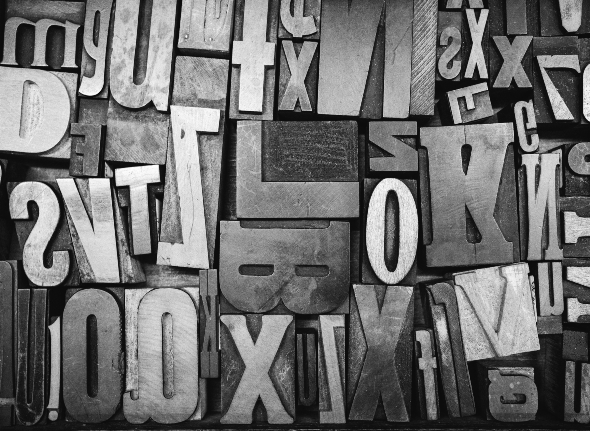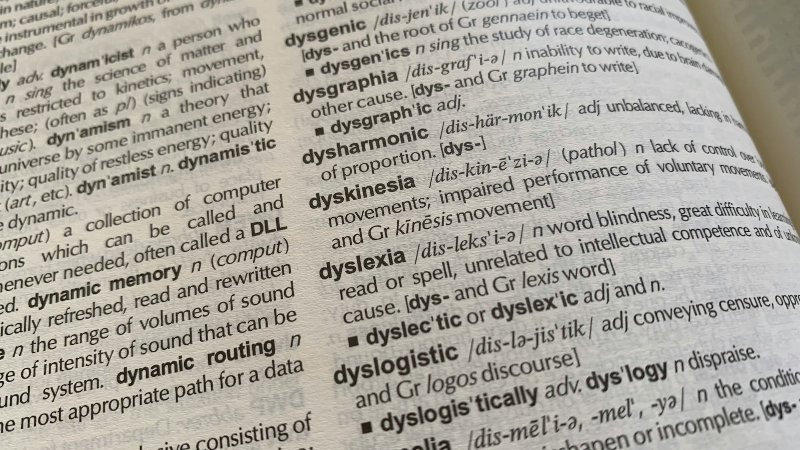National Dyslexia Week: Thinking Differently About Dyslexia
In this article, we explain what dyslexia is and how to find support. We also explore some advice and organisations that encourage people to think differently about dyslexia.


According to the NHS, 1 in 10 people have some level of dyslexia.
Think about how many people are in your class at school or college. Maybe there’s 20 people, if you’re in a bigger school there could be closer to 30.
If we use this example as a guide, that means there’s an extremely high chance that somebody in your class, whether they realise it or not, has a form of dyslexia.
What is dyslexia?
The British Dyslexic Association describe dyslexia as this:
“Dyslexia is a neurological difference and can have a significant impact during education, in the workplace and in everyday life”.
It means a dyslexic mind views the world differently. The way people with dyslexia see problems and how they approach them is different to people without dyslexia. This is referred to as being neurodivergent.
Dyslexia is a spectrum; this means that someone with dyslexia’s experience may be different to somebody without it. This is because it could impact their ability to digest and process information.
Dyslexia is considered a learning difficulty and is classified as a disability under the Equality Act 2010. It’s common that dyslexic people have issues with reading, writing and learning in general. However, these challenges do not mean that the person is incapable of learning, it simply means they learn in a different way.


Different is good
If you’re somebody who is dyslexic, you might have had some negative experiences during your time in education. It’s difficult to see others your age understands information that is being presented to them quickly whilst you don’t quite understand yourself – or it might just take you a bit longer. This can leave you with feelings of shame and knock your confidence.
A lot of things have not been designed with the consideration of neurodiverse brains. Although things are changing, and a lot of young people are given a lot more support, it can be frustrating when you can see something has not taken into consideration a neurodiverse perspective.
Feeling different to others can knock your confidence. However, intelligence presents itself in more ways than one. Everyone is intelligent in their own way, being academic and achieving high grades, as impressive as it can be, is not the only way a person can be considered smart.
One organisation that exists to educate on the importance of dyslexic thinking in our society is Made by Dyslexia. Their work focuses on empowering those with dyslexia, and spreading the message that thinking differently is beneficial to innovation and creation. In short, dyslexic people are beneficial to our societies.
Their website is a goldmine of useful sources to help you navigate your dyslexia, or if you simply want to learn more about dyslexic thinking. Find out more on the website.
What support is available to me?
If you are dyslexic, you might be receiving help in school or college already. However, there are organisations that exist independently that provide support to those with dyslexia.
If you are dyslexic or know somebody who is, you might have concerns about what the future will look like. Knowing where you can find guidance and support can make a difference.
Below you’ll find three organisations that you might find helpful if you know someone who is dyslexic or are dyslexic yourself.
British Dyslexia Association
The British Dyslexia Association does a lot of work of supporting those with dyslexia. Their website is jam packed with guidance on the symptoms of dyslexia and how that can impact your daily life.
As well as advice on getting tested, they have services that allow you for search for tutors that could support you in your local area.
They don’t only support children and young people; they offer guidance and resources to adults to.
Dyslexia is a lifelong condition, and that is recognised by the British Dyslexia Association.
BBC Bitesize
Knowing that there are others who are facing the same challenges as you can be helpful. Understanding that the struggles we face, are also being experienced by a larger community of people can be comforting.
The BBC bitesize page dedicated to all things Dyslexia, allows you to watch real life examples of others living with dyslexia. They have of videos on what dyslexia is and clips featuring different stories of people with dyslexia are navigating their lives.
The Empowerment Passport
Sometimes knowing what you’re entitled to is not very clear. Or you might know what support or services you’re eligible for, but you find it challenging to know how to word this or even begin the conversation.
This is where The Empowerment Passport comes in. This is an organisation that has sources that will educate you on what you could be entitled to as a dyslexic person.
The organisation also allows you to create your own empowerment passport. This document communicates to employers or program leaders what your needs are.
However, it’s worth knowing there is a fee you must pay for the empowerment passport. If you feel such a document would be beneficial to your quality of life, then you might be happy to pay. Although if this is not something you think you can afford, remember that the guidance on your rights they have linked to are free to access.
Embracing Dyslexia
There’s a misconception that being dyslexic can limit you. It’s true that being dyslexic in a world that caters for people who are neurotypical can be challenging.
But everybody’s journeys to success is different. Even what we consider to be a success is individual to each person.
It’s important that we not only accept who we are, but to embrace it. Identifying your strengths and weakness earlier in life, will help you in the long term. By finding a way to work through your challenges, you can enjoy the things your good at.
Related

Staying safe for Halloween
[rt_reading_time...

Why is donating blood so important?
[rt_reading_time...
